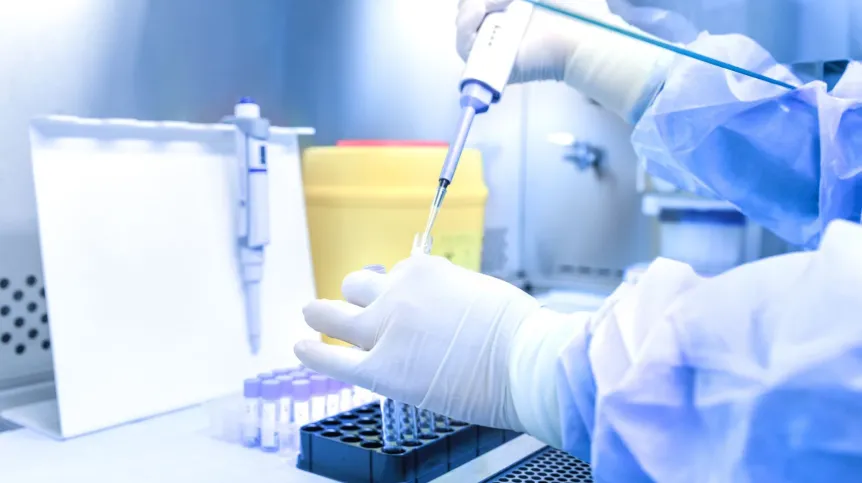
Advanced age, overweight, male sex, and in the fourth place genetic factors determine the severity of COVID-19, show the results of researchers from the Medical University of Bialystok.
Researchers from the Medical University of Bialystok have identified a genetic variant that predisposes to a severe course of COVID-19, more than doubles the risk of such a course of this disease and the death of the patient. The university refers to this discovery as a breakthrough.
Research results were presented last week in Białystok at a press conference attended by the Minister of Health Adam Niedzielski and the President of the Medical Research Agency Radosław Sierpiński.
1.5 thousand COVID-19 Patients were tested. The identified genetic variant may affect 14 percent of the Polish population, approximately 5 percent more than in other European countries.
'We show that genes are a very important factor that determines the course of any disease including COVID-19, but I would like to put them in the right hierarchy. We do not show that genes are the most important factor, it is never that simple. They are significant, they are in the fourth place', Professor Marcin Moniuszko, the research project leader and Vice-Rector for Development and Development of the Medical University of Bialystok said in an interview for the Polish Radio Białystok.
'The factors that primarily determine the severity of the course of many diseases, certainly including COVID-19, are in the following order: advanced age, overweight (every kilogram more unfortunately increases the risk of severe course) and, unfortunately for men, the male sex. Genetic factor is in the fourth place, before comorbidities, according to the study we carried out in collaboration with a dozen clinical centres all over Poland', said Moniuszko.
He pointed out that similar studies previously conducted in the world showed that there were differences between populations and that ethnic issues were also important. 'These nuances can sometimes determine the course of the disease', Moniuszko said and pointed out that copying solutions from other countries should not be our goal, because patients are genetically diverse and solutions that work elsewhere might be ineffective in Poland. That is why it is important that the research was carried out in Poland.
When asked whether the results of the study allowed to conclude that Poles were more at risk of a severe course of the coronavirus infection, he said that the matter was complicated.
'Our research did show this increased incidence of genetic variant predisposing to a severe COVID-19 course. 14 percent in Poland, about 8 percent in Europe, but in India, for example, it is 27 percent, and when it comes to East Asia, China, these are fractions smaller than 1%. This means that geographically we are predisposed to a varying degree. Whether this explains this dramatic balance of COVID-19 deaths - (...) that would be too simple', said Moniuszko. According to the professor, this type of research is the future when it comes to various diseases.
He believes that the research results allow to develop an uncomplicated test, which would help identify people at risk of severe coronavirus infection. Professor Marcin Moniuszko says that the scientists present research results, they will make every effort for the test to be developed but it is possible that someone else will develop it.
'We hope that such a test could help people who think they are super safe to see that this safety is not a given', said Moniuszko.
He emphasized that a positive result of such a test could encourage a given person, for example, to vaccinate (in the case of people who have not done that yet), comply with epidemic restrictions, be more careful. It is also an important information for doctors who decide on treatment options and the use of therapy for patients with severe disease.
Moniuszko estimates that the test could be developed within a few months, maybe even earlier. (PAP)
author: Izabela Próchnicka
kow/ ekr/ kap/
tr. RL













